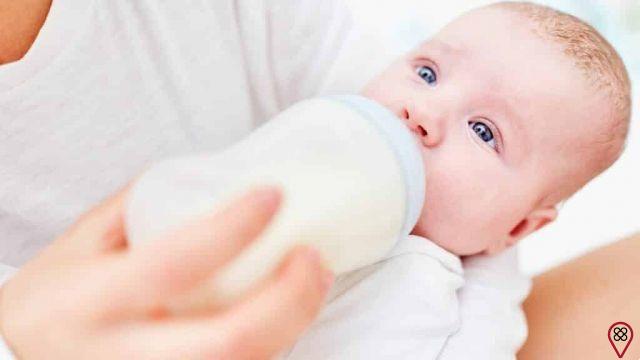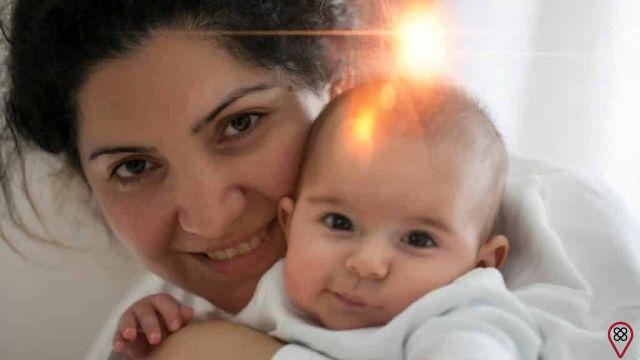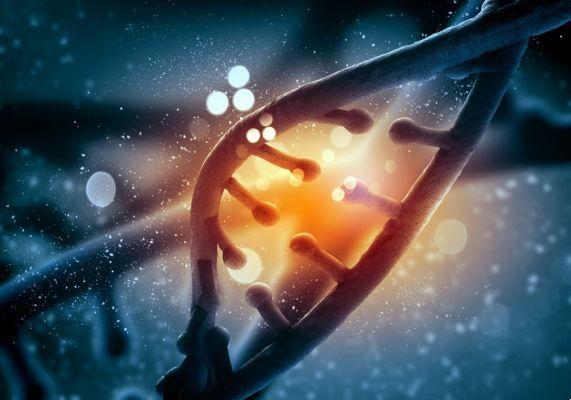Experts say that breastfeeding is good for both mother and baby. If you breastfeed for any length of time, no matter how short, both you and your baby will benefit from breastfeeding. Such is the importance of this act that there is World Breastfeeding Day, to remind everyone about what is considered the first way of feeding the human being in the world.
Deciding to breastfeed can give your baby the best start in life possible. Throughout the text, learn about the importance, benefits of breastfeeding and also guidelines that can help in this important process, in addition to the purpose of creating the date. After all, breastfeeding takes time and practice, which is why it is so important to get help from the family and also from lactation consultants or support groups to succeed with breastfeeding.
Breastfeeding: a meaning that saves lives
Breastfeeding benefits babies, increasing the chance that they will grow up without getting sick; especially during the first years of life, which are crucial for their healthy development.

You should know that in addition to creating an emotional bond between you and your baby, breast milk is the most effective and complete food for optimal physical and mental growth.
The importance of breastfeeding for the formation of the child
The advantages of breastfeeding, according to several published studies, are numerous: strengthens immune defenses, promotes the intestinal development of the newborn, strengthens the mother-child relationship, protects women from breast cancer, ovarian cancer and osteoporosis in old age.
This is the biggest investment in health for the child, for the mother and for the whole community, and it is essential to try to promote and preserve it with policies and information campaigns dedicated to future families.
In addition, breast milk is the perfect food: contains, in balanced proportions, all the nutrients, bioactive substances and beneficial microorganisms that the baby needs from birth and during growth.
How did World Breastfeeding Day come about?
World Breastfeeding Day is celebrated around the world on August 1, the date chosen by the World Alliance for Breastfeeding Action (WABA). This date came about in an event held in New York City, in 1991. Therefore, every year, in España, in the first week of August, a World Maternal Nutrition Week.
It is not surprising that, with this panorama, actions have increased to make visible the importance of, mainly, the authorities, but also the population in general, to integrate once and for all the agreed measures in defense of breastfeeding.
Not Spain, we have or August golden, what symbolizes the struggle to encourage breastfeeding. Eu Sem Fronteiras has a text published “Golden August — All together for breastfeeding”, which provides more information about this campaign.
It is important to have a month dedicated to breastfeeding, as breastfeeding has benefits for both mother and baby. The golden color is related to the gold standard of breast milk quality, and the term “Agosto Dourado” was created by the Pediatric Association of São Paulo, which aims to raise awareness of the importance of breastfeeding, and was officially launched in 2017.
In the world, the person responsible for organizing each year the activities to celebrate the World Breastfeeding Week is the He was (World Alliance for Breastfeeding). This global network of individuals and organizations was formed in 1991, and its mission is to protect, promote and support breastfeeding around the world.
The objectives of celebrating World Breastfeeding Week are:
• Inform people about the importance of protecting breastfeeding;
• Anchor breastfeeding support as a vital public health responsibility;
• Engage individuals and organizations for greater impact;
• Promote actions to protect breastfeeding to improve public health.
How important is World Breastfeeding Day?
It is essential to have a date focused on the topic, in order to reinforce the whole of society on the importance of breastfeeding. From activities in general to lectures, which even help the woman to identify the importance of breastfeeding her child.

World Breastfeeding Day highlights the importance of human milk for baby food, being a social campaign for greater awareness of dads and moms. Therefore, this day also seeks joint action between health institutions, public agencies and the population, in order to improve breastfeeding rates in the country.
Benefits of breastfeeding for babies and mothers
Here are some benefits of breastfeeding for your child:
• Fewer respiratory infections and digestive and intestinal discomfort;
• Allergy prevention;
• Prevents obesity;
• Helps fight different types of bacteria and infections.
Benefits for moms
It is estimated that mothers who breastfeed for 6 to 24 months during their reproductive life can reduce their risk of breast cancer by between 11 and 25%. Thus:
• You strengthen the bond with your child;
• Lose weight more easily;
• Breast suction causes the uterus to retract quickly after delivery, preventing pain;
• Reduces the chances of postpartum depression.
In addition to you benefiting, society itself also benefits from it, with healthier and less vulnerable children.
What does the law say about the breastfeeding period?
Breastfeeding is a human right that must be respected, protected and fulfilled. Therefore, breastfeeding is a shared responsibility, which must involve and mobilize actions by the whole society to protect and support breastfeeding.

That's why there are numerous laws that protect mothers from breastfeeding. There are statutes and protective ordinances. There are also municipal and study laws that must be followed in each region of the country.
In Spain, maternity leave is 120 days, without prejudice to employment and salary, and it is up to the companies whether or not to release the worker for 180 days. the art. 396 of the Consolidation of Labor Laws (CLT) provides all complete information, and breastfeeding women are entitled to two 30-minute intervals to breastfeed their baby until they are 6 months old.
What is the WHO recommendation for breastfeeding?
The World Health Organization (WHO) recommends that mothers exclusively breastfeed babies for the first six months of life, but also invites women to continue breastfeeding until the age of two (or, in any case, as long as the mother and child wish).
More reasonably, it would be nice to at least get to the child's first birthday. Doing so, as documented by a study published in the journal Science Advances, would guarantee protection against infections that would extend far beyond breastfeeding and, in many cases, would last a lifetime. This is due to the transfer of cells from the immune system, capable of “educating” the little ones about their mothers' infections. All the more reason, therefore, to encourage them not to abandon this habit.
What are the important guidelines on breastfeeding?
To be able to breastfeed the baby, it is essential that the mother seeks to eat well, and also drink plenty of water. Furthermore, emotional support and family help are important, especially in the first days, a period of greater difficulty, since it is precisely at this stage that many mothers end up giving up breastfeeding.

What's more, to protect yourself against cracks and infections, just pass your own milk before and after the baby feeds.
Also as recommended by the World Health Organization, up to six months, the baby only needs breast milk, so it is not necessary to give the baby tea, juice or baby food.
Below are some guidelines for breastfeeding:
• Early and continuous skin-to-skin contact between mother and baby should be facilitated and encouraged as soon as possible after delivery (moderate quality of evidence);
• All mothers should be supported to initiate breastfeeding as early as possible, within the first hour after delivery (high quality of evidence);
• Mothers should receive practical support so that they can initiate and initiate breastfeeding and manage the most common difficulties associated with it (moderate quality of evidence);
• Mothers should be instructed on how to express breast milk to maintain lactation in cases where they are separated from the newborn (very low quality of evidence);
• Mother and child facilities should allow mother and baby to stay together, practicing rooming-in day and night. This may not be “applicable” in circumstances where the baby needs specialist medical care (moderate quality of evidence);
• Mothers should be supported to practice “reactive” feeding as part of nutritional assistance (very low quality of evidence).
You may also like
- Learn how to deal with high blood pressure in pregnancy
- Understand everything about a pregnancy after 30
- Watch out for the signs of an ectopic pregnancy
As you've seen, there are many benefits to breastfeeding your baby, and it's the best decision you can make. Also, breastfeeding a newborn is a gesture that, in addition to creating the basis of their relationship with the mother, represents an opportunity to defend their health.

























